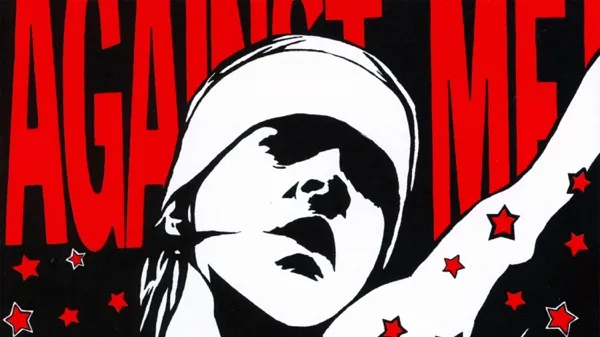Each Sunday, Pitchfork takes an in-depth look at a significant album from the past, and any record not in our archives is eligible. Today, we revisit Laura Jane Grace’s 2002 folk-punk salvo, an album that yearns for an escape from and through rock’n’roll.
October 16, 2022
When you’re especially young, pop music opens a world where things actually happen. Behind the brittle plastic of a jewel case or the curved glass of a TV console, a gleaming reality promises a life outside the walls of your parents’ home. As a young Army brat flung between cities and continents, Laura Jane Grace clung to the image of Axl Rose as it came to her through MTV. The flash, bang, and squeal of Guns N’ Roses electrified her imagination. “Their music appealed to me because it felt dangerous. I was afraid of my parents seeing the liner note artwork,” she wrote in her 2016 memoir. “The look of the band, particularly that of wiry lead singer Axl Rose, excited me most because it was androgynous. Hair was big, clothes were tight, lines were blurred. I often couldn’t tell if band members were boys or girls, and I liked that.”
That was third grade. By age 21, Grace had changed her tune. “It’s obvious Axl Rose is a jerk,” she said then. She was explaining the title of her band’s debut album, Reinventing Axl Rose, to a newspaper reporter. The record’s cover featured a black and white stencil of the Guns N’ Roses singer with his arms flung wide, in seeming ecstasy before an adoring crowd. The band’s name, Against Me!, slammed against the back of his head with the bluntness of a midcentury propaganda poster, and red stars rained down over his shoulders. “In a way I’m pleading not so much for a new rock star, because a rock star is still a rock star, but for how music should be,” Grace said.
In the years between her grade school adulation and the jaded frustrations of her early twenties, the cracks in the adult world yawned open for Grace. The shine of a music video no longer offered a portal to a better plane; pop music lost its season, like tinsel spilling from a dumpster sometime in late February. Grace’s parents split while she was in middle school, and her mother moved the kids from Italy to Naples, Florida, a sleepy, wealthy enclave across the state from Miami where their grandmother lived. Grace bristled at her bleached, manicured surroundings. She grew out her hair and went punk, spiking her mohawk with food-grade gelatin and stitching patches onto her jeans as armor. By 15 she’d been convicted of two felonies after a cop brutalized her for standing around on a boardwalk; she spat in his face and he hog-tied her in the back of his car. By 16, she’d dropped out of high school and discovered the Minneapolis-based anarcho-punk collective Profane Existence, which put out releases with high contrast, xeroxed covers from scrappy hardcore bands like State of Fear and Civil Disobedience. These DIY factions proved music could open up into a current that ran deeper than the glitz of MTV. It could incubate politics more fervent and fertile than the adulation of the already wealthy. It could tether maladapted kids to each other with electrified wire, and carry them forward through the days of a world that seemed to want them dead.


